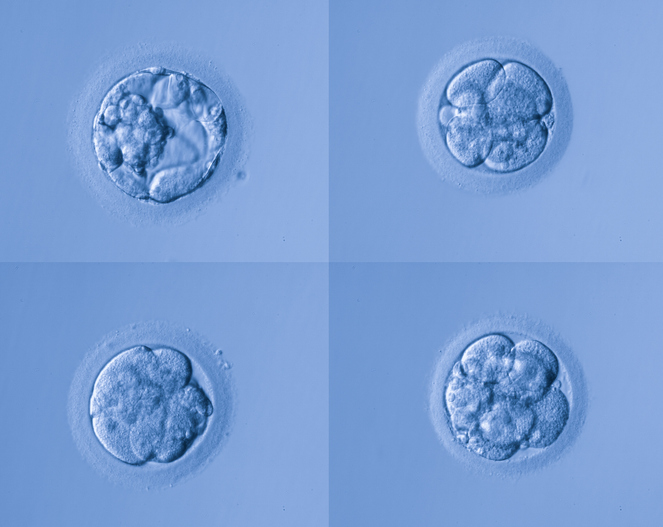.png)
.png)
Donating your eggs is an extraordinarily generous act. As an egg donor, you have the potential to help a family struggling with infertility or a same-sex couple realize their dreams of parenthood. But the decision to donate eggs is not one to be taken lightly, and it's natural to want the support and understanding of your family as you embark on this journey.
If your partner is unfamiliar with the egg donation process, they may have numerous questions and concerns. Some of the most common questions revolve around the medical risks involved, potential contact with the intended parents (IPs), and the timeline of the whole process. Here's a guide to help you address these concerns.
Should I tell my partner/boyfriend/spouse I want to donate my eggs?
While it is absolutely within your right to keep this information private, there are considerations that might sway you toward opening up about it.
First, it may be hard to hide. The egg donation process involves medical appointments, injections, and potentially some down time after the egg retrieval. It could become difficult to keep these aspects concealed, especially if you and your partner share many aspects of daily life. From a practical standpoint, hiding the process may add unnecessary stress or complications.
Second, you might want their support. Sharing the decision with your partner can foster open communication and enable emotional support throughout the process. It provides an opportunity for your partner to understand your motivations and to be part of the experience, even if only as a listener or a helping hand.
Your partner's reaction to this decision might also provide valuable insights into the relationship's dynamics. If the response is dismissive, excessively critical, or unsupportive, it may be a red flag that prompts further reflection on compatibility and shared values. Conversely, a supportive partner's response can strengthen the relationship, building deeper trust and empathy.
While there is no right answer, one thing is for certain, your decision to donate is yours and yours alone, and so is your decision to tell them… or not. This means you are the one who can best make this decision.
Read more in: Should I Tell People I'm Donating My Eggs?
Common questions partners may have
What is the medical risk?
Egg freezing is considered a safe procedure. In a single egg freezing cycle, the risk of a serious adverse event is under 2.5%. Severe OHSS accounts for the majority of complications, occurring in 0.1-2% of cycles. The risk of other acute complications, including pelvic infection, intraperitoneal hemorrhage, or ovarian torsion, is small (<0.5%). That being said, many women do experience minor side effects – like bloating, constipation, nausea – from the medications and egg retrieval. Side effects are typically mild and short-lived.
Egg donation requires a series of hormone injections to stimulate the ovaries into producing multiple eggs during a single cycle. You can assure your partner that these medications are prescribed under the careful supervision of a fertility doctor.
The egg retrieval process itself is a minor surgical procedure done under sedation, so you won't feel anything during the procedure. Post-procedure discomfort is typically minimal and can be managed with over-the-counter pain relievers.
You can remind your partner that all steps of this process are carefully monitored by experienced, board-certified fertility doctors who prioritize your health and safety above all.
Will you be freezing eggs or embryos and why?
If you’re in a relationship with a biologically male partner, they may be wondering if you are going to freeze embryos or eggs.
While it’s true that thawing success rates can be slightly higher for embryos than eggs (at a 95% survival rate vs 90% for eggs), the downside is that once an egg is fertilized with sperm, there’s no going back, so freezing eggs instead of embryos will give you more options down the line.
We know, this might be a little bit of an awkward one to bring up with your partner, but it might come up at some point, so the best you can do is be prepared with the facts.
Read more in:
Will egg donation impact your ability to have kids in the future?
Egg donation, which is the same medical procedure as egg freezing, won’t lower your egg reserve and it won’t affect your chances of getting pregnant naturally when you’re ready to do so.
In fact, participating in our Split program – where you freeze your eggs for free when donating half to another family – can actually increase your chances of having a baby down the line because you are preserving younger eggs.
Who are the parents that need donor eggs?
Many types of families need egg donors to grow their family, including people facing infertility, LGBTQ+ couples, cancer survivors, women with age-related fertility decline, and more.
Sharing more about the family you are matched with can help humanize the experience.
What will your relationship be like with the intended parents?
The level of contact with the intended parents is highly dependent on the agreement you reach beforehand. Some arrangements are undisclosed, with no information exchanged between you and the IPs. Other arrangements are disclosed, allowing varying degrees of communication and contact, such as the exchange of letters or even face-to-face meetings.
Your choice about the type of relationship you wish to have with the IPs is up to you, and you should assure your partner that you will make the choice that feels right.
Does this mean our future kids will have siblings out there?
Technically speaking, children born from your donated eggs would share a genetic link with you, as well as with any of your existing biological relatives. However, neither you nor your partner would have any legal or parental ties to these children.
A sentiment eloquently expressed by one of our egg donors to her boyfriend captures this nuance: “I view egg donation as an act of helping others realize their family dreams. The children born from my eggs will belong to their own families, not ours. While the connection may be biological, it isn't familial."
What are the legal implications?
Understanding the legal rights and obligations associated with egg donation is important. You can let your partner know that before the egg donation process begins, you will sign a legal contract that outlines the rights and obligations of all parties involved. This includes an agreement to relinquish all parental rights to any children born from the donated eggs.
How does Cofertility work?
Cofertility’s Split program offers women a chance to both freeze their own eggs and donate half the eggs to a family who cannot conceive otherwise. Every expense associated with the egg freezing procedure — medications, supplements, travel if necessary, insurance, and 10 years of storage — are completely free of charge.
Cofertility assigns a Member Advocate to each donor to support her throughout the entire journey. They’ll be there every step of the way as appointments get scheduled and plans for the cycle are made. No question is too small for Cofertility’s Member Advocate team. Plus, Split members have support of our entire community of others going through the same process.
How much time will it take?
The timeline can vary depending on several factors, including your menstrual cycle and the matching process with intended parents. The process begins with an application, followed by a screening process, which can take several weeks.
Once approved and matched with the IPs, you'll start the ovarian stimulation process, which takes about two weeks. This involves daily hormone injections to stimulate the ovaries. The egg retrieval procedure is scheduled once the eggs are mature, typically after 10-14 days of stimulation. Following the retrieval, you will have a brief recovery period, usually a day or two, to allow any minor discomfort or side effects to dissipate. You will know immediately how many eggs were retrieved and frozen for your own future use.
In total, from match to retrieval, the process can take anywhere from two to four months.
Will you get enough eggs to use in the future?
Being part of Cofertility’s program means you passed rigorous medical screening, including AMH and antral follicle count, and that our medical team and the doctor performing the egg retrieval believe you are a good candidate for egg sharing. This doesn’t guarantee that you will get a lot of eggs, but it is pretty predictable.
Furthermore, a UK study of egg sharing amongst IVF patients found that participating in an egg sharing program did not compromise the chance of achieving a pregnancy or live birth for the egg sharer or the recipient.
Summing it up
Your partner’s concerns and questions about your decision to become an egg donor are understandable. They want to ensure your safety and wellbeing, and these are valid concerns.
As you discuss the process, remind them of your reasons for making this choice and assure them of your commitment to understanding and minimizing the risks involved. Encourage them to accompany you to a medical consultation if possible, to provide them an opportunity to hear information directly from professionals, and to ask any questions they may have.
Your act of egg donation could bring immense joy to a family longing for a child. It's a beautiful decision, and having your partner’s understanding and support will undoubtedly make the journey even sweeter.
Read more:










